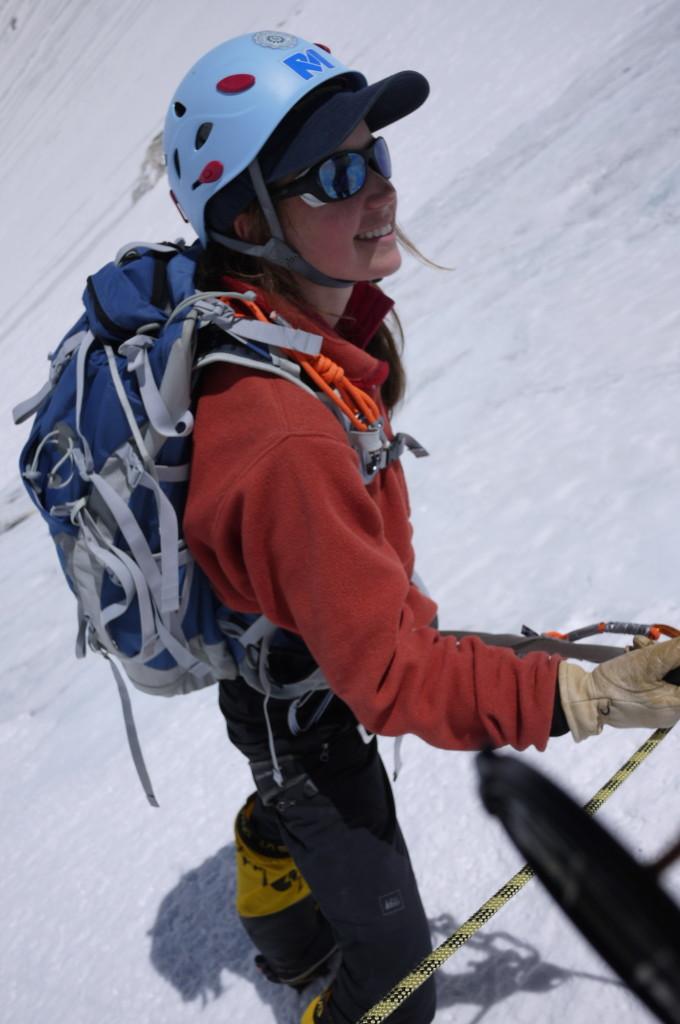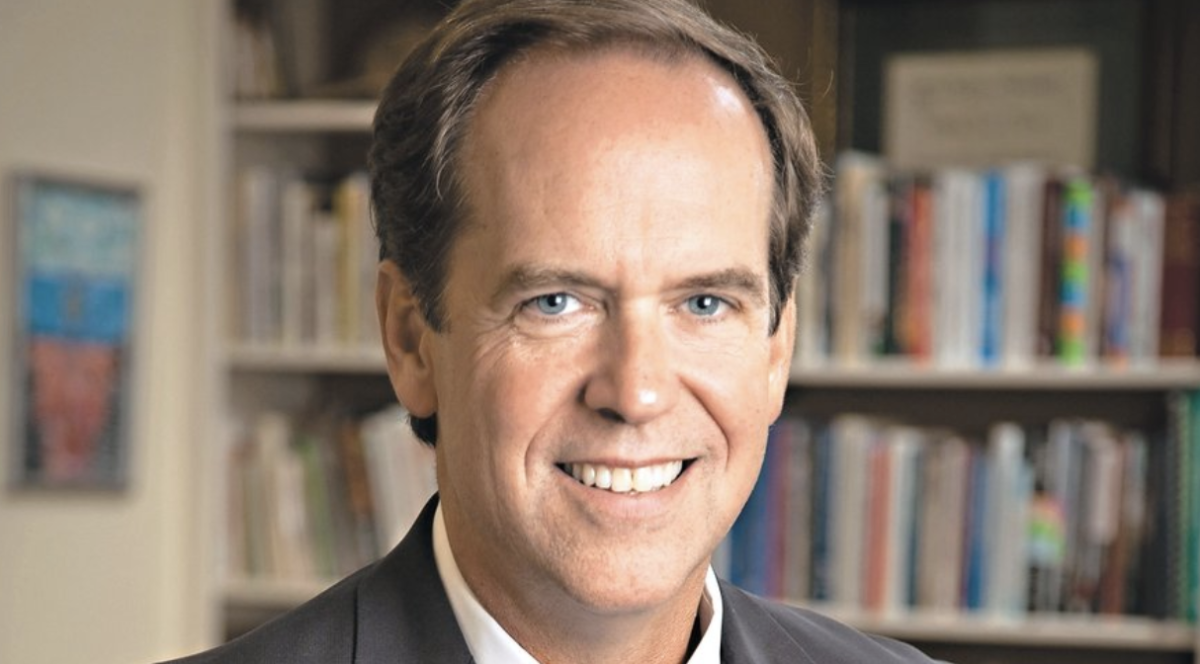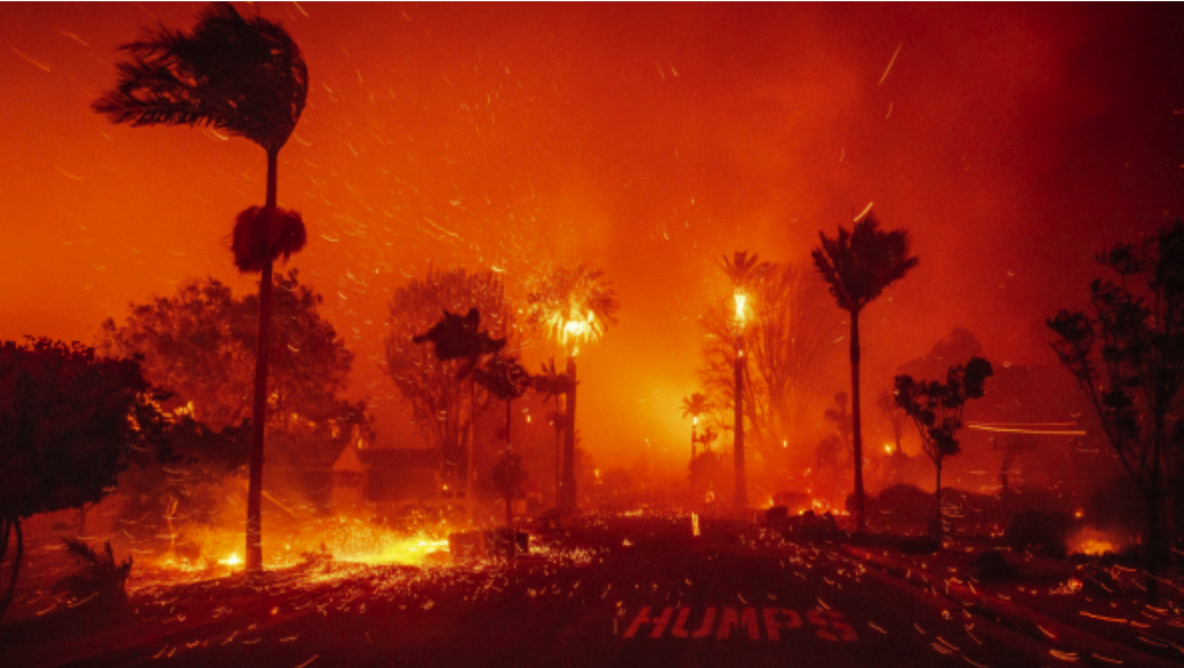This past spring, current junior Sara McGahan embarked with her father on a two-month expedition to climb Mt. Everest, the tallest mountain in the world. A part of an eight-member crew consisting of her father, two guides, four sherpas, and herself, Sara hiked for weeks in the mountains of northern Nepal before attempting to summit Mt. Everest. It was a journey that she described as “life-changing.” Intrigued by her adventure, I asked her a few questions about the experience.
Ben: What got you into climbing and mountaineering in the first place?
Sara: When I was in seventh grade, my dad and I climbed Mt. Kilimanjaro in Tanzania. We had a lot of fun on the trip, and that’s what got us both interested in climbing. Since then I had climbed four more of the “Seven Summits,” Mt. Aconcagua in Argentina, Mt. McKinley in Alaska, Mt. Kosciuszko in Australia, and Mt. Elbrus in Russia, and it felt like each mountain was another step closer to Everest.
Ben: What is it you love about climbing and mountaineering?
Sara: I love the physical and mental challenges that climbing brings and the crazy places it can take you around the world. This sport has brought me to Mineralnye Vody, Russia; Kathmandu, Nepal; and Mendoza, Argentina, to name just a few places. But the best part about climbing is definitely the people. The people you meet on a mountain are adventurous, hard working, and very accomplished. Climbers work together as a team on a mountain and help one another not only get to the top but ensure everyone gets down as well.
Ben: How did you train for the Everest expedition?
Sara: I did some sort of exercise for about two hours every day. That exercise usually consisted of a combination of running, weightlifting, and hiking. I mostly hiked trails along the Chattahoochee River while wearing my forty-to-fifty-pound backpack.
Ben: At 16 years old, you were obviously at a very young age to attempt to summit Mt. Everest. Were there ever any doubts in your mind about the trip?
Sara: No, there was not any doubt in my mind. I have climbed many other mountains that have also been very tall, hard, and cold. Summiting these mountains gave me confidence that I could attempt Everest. However, the way people reacted to me climbing Everest was much stronger than when I climbed other mountains. Everyone has heard about Mt. Everest and the challenges it brings, but not many people know about the challenges of Mt. McKinley in Alaska, Mt. Aconcagua in Argentina, or some of the other mountains I’ve climbed. So some people that didn’t know about my climbing history were shocked that a sixteen year old from Atlanta was trying to climb Mt. Everest.
Ben: Was there any aspect of Himalayan life or culture that particularly struck you?
Sara: The natives that live in northern Nepal are called the Sherpa, and their religion, Buddhism, is very important to them. What struck me most about Himalayan life was the spirituality of the Sherpas. For example, no one in our team could set foot on the mountain until we had the Puja ceremony, a two-hour ritual in which a Buddhist monk came and blessed our team and our equipment for safe travels up the mountain.
Ben: Your time at the Everest base camp took up the majority of the trip, so could you describe an average day there?
Sara: A typical day at base camp started by waking up around 8 a.m. and eating breakfast. Then after breakfast we would prepare for an upcoming climb by going through gear, packing loads, and planning out the meals that we were going to eat higher on the mountain on any of our three “practice summits” to help us acclimate. Then, around 12 p.m., we would have lunch. After lunch we would rest, watch movies, play horseshoes, cards, or Yahtzee. Dinner was then served at 6:30 P.M., and almost every night after dinner we would invite other climbers and Sherpas over to play poker.
Ben: You and your father did ultimately decide to turn around – what factors led to this decision?
Sara: It’s very difficult to judge how hard to push yourself on Mt. Everest, and there are dire consequences when you push yourself too far. Everyone feels bad when getting up to severely high altitudes, and the difficulty comes in how hard and how far to push yourself at those altitudes, and how much pain is tolerable. We met and encountered many people on Everest who pushed themselves too far, and when my dad dropped out of the climb I was put in a position of having to make those judgments myself.
Even though I felt reasonably strong, I had doubts about my ability to summit, and I didn’t feel comfortable with the decision of how far to push myself high up on the mountain.
If you are wrong, and you push yourself too far, there are significant consequences.
Ben: Now, nearly half a year later, how do you look back on the Everest expedition? How have you incorporated the experience into your life in Atlanta?
Sara: It was a tremendous experience that I wouldn’t trade for anything, and to me, it was a huge success. You cannot summit every mountain you try to climb, and that is what makes it such a great challenge. One of the many things I learned on Everest is that it takes tremendous perseverance to accomplish any significant challenge in life.
It would be awesome to go back and try again in the next few years!
Ben: What’s next in your climbing future?
Sara: This summer I’m climbing Mount Carstensz in Indonesia, which is the highest point in Oceania. I’m very excited!






